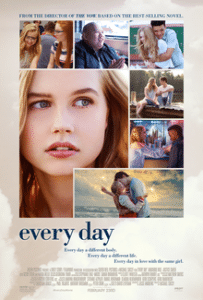
Every Day
Rhiannon lives a special day with her boyfriend Justin, who seems more alert, romantic and sensitive than usual. And finally he falls in love with him. But in the following days he catches the same signs of that day in other people, while Justin seems to have returned to the same as always. As long as it is not A, an incorporeal entity that changes its envelope every day, to reveal itself to Rhiannon as its object of love.
It would be too simple to dismiss Everyday as the umpteenth variation on the theme of Beginning Again, or as a Young Adult vision on sexual fluidity.
In fact, in its simplicity of structure, the adaptation of the novel by David Levithan, directed by Michael Sucsy, hides more than an unusual and very current subtext. Apparently Every day celebrates the freedom to choose one’s partner regardless of how the latter presents itself: love is such a song that unites us, such as “This is the Day” by The The, or an affectionate gesture, a complicity . But the courageous radicalism to which the film seems to tend, when A transits through girls or in subjects far from the aesthetic canons of teen dramas, reveals itself only as an appearance. Rhiannon has a sufficiently open mindset to believe in the confession of A and to find the strength to love him, regardless of the appearance that the latter takes and the risk of being accused of promiscuity by the community that surrounds it. But, in reality, the camera lingers on emotional exchanges and effusions only when A houses in Caucasian teenagers and with a pleasant appearance. On the other hand, when the risk of tackling territories at the limit of gender clichés becomes high – as in the sequence in which A “enters” in Rhiannon – Sucsy chooses a more timid approach, avoiding any problematic ethical and behavioral situation.








